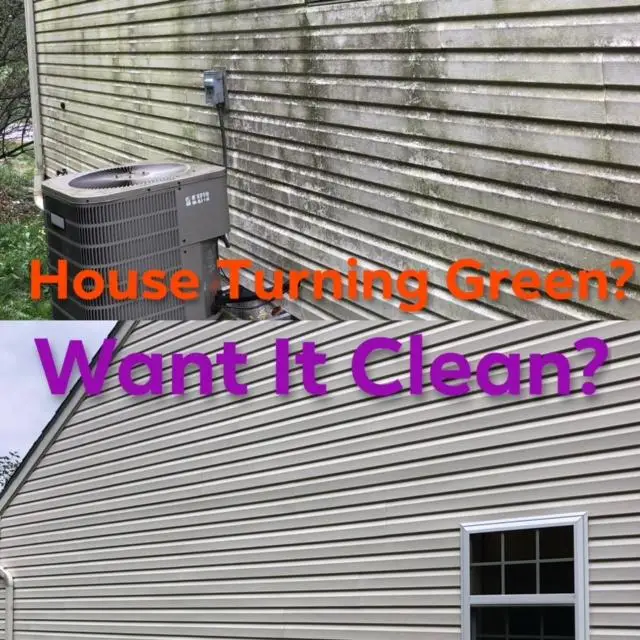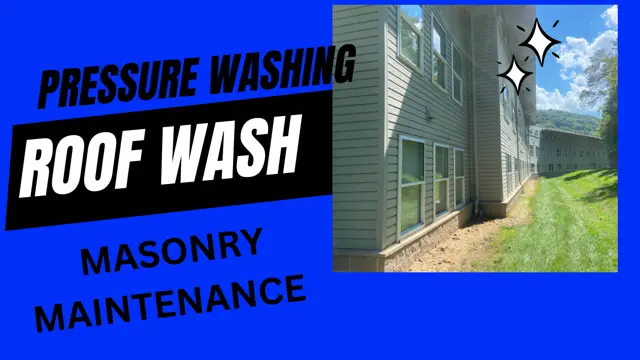Pressure Washing
Pressure washing, also known as power washing, is a cleaning method that utilizes high-pressure water to remove dirt, grime, mold, mildew, algae, and other contaminants from various surfaces. It involves the use of a pressure washer, which is a machine that generates a powerful stream of water at a high pressure.
The process of pressure washing typically involves the following steps:
Preparation: Before starting the pressure washing, any delicate or sensitive items in the cleaning area, such as plants, outdoor furniture, or fragile surfaces, are usually covered or moved to protect them from the force of the water.
Equipment setup: The pressure washer is connected to a water source, such as a garden hose, and the appropriate nozzle or attachment is selected based on the surface being cleaned and the desired water pressure.
Application of water and pressure: The high-pressure water stream is directed at the surface to be cleaned. The force of the water, combined with the appropriate nozzle, helps dislodge and remove dirt, grime, and other contaminants.
Adjustments: Depending on the surface and the level of cleaning required, the pressure and nozzle settings may be adjusted to achieve optimal results without causing damage. For example, different surfaces may require different pressures, and a wider fan spray may be used for larger areas.
Cleaning solution (optional): In some cases, a cleaning solution or detergent may be used in conjunction with pressure washing to enhance the cleaning process. The solution is usually applied before pressure washing and helps break down stubborn stains, grease, or mildew.
Rinse: After the pressure washing is complete, the surface is rinsed thoroughly with clean water to remove any remaining cleaning solution, dirt, or debris.
Pressure washing is commonly used on outdoor surfaces such as driveways, sidewalks, decks, patios, fences, siding, and concrete or brick surfaces. It is an effective method for removing built-up dirt, grime, and organic growth, and it can help restore the appearance of surfaces to a cleaner and more vibrant state.
While pressure washing can be a powerful cleaning tool, it’s important to use it with caution. The high-pressure water stream can cause damage to certain surfaces if not used properly. It’s advisable to follow manufacturer guidelines, use appropriate pressure levels, and consider hiring professionals for delicate or sensitive surfaces to ensure effective and safe cleaning.

Contact Us
Types Of Services Where We Utilize Pressure Washing
- Concrete Cleaning
- Paver Cleaning
- Oxidation Removal
- Rust Stain Removal
- Red Clay Stain Removal
- Efflorescence Removal
- Fleet Washing
- Heavy Equipment Cleaning
- Commercial Pressure Washing
- Concrete Stripping
- Paver Stripping
Soft Washing
Soft Washing vs. Pressure Washing: Choosing the Best Exterior House Cleaning Method
Introduction
Maintaining the exterior of your home not only enhances its curb appeal but also protects it from the harsh elements. When it comes to cleaning the exterior, two popular methods stand out: soft washing and pressure washing. Understanding the differences between these techniques is crucial for effective cleaning and preserving the structural integrity of your home.
What is Soft Washing?
Soft washing is a method of cleaning that utilizes low-pressure water combined with environmentally friendly cleaning solutions to remove dirt, algae, mold, mildew, and other contaminants from various surfaces.
What is Pressure Washing?
On the other hand, pressure washing involves using highly pressurized water to clean surfaces. This method is ideal for removing tough stains, grime, and debris from hard surfaces like concrete, brick, and stone.
Soft Washing: Gentle yet Effective Cleaning
Soft washing offers a gentler approach compared to pressure washing. It’s particularly effective for delicate surfaces such as:
1. Siding
Vinyl, stucco, and wood siding can be susceptible to damage from high-pressure water. Soft washing ensures a thorough cleaning without risking surface erosion or water penetration, preserving the integrity of the siding.
2. Roofing
Cleaning roofs with soft washing prevents damage to shingles or tiles. It eliminates algae, moss, and lichen, extending the life of the roof while maintaining its appearance.
3. Delicate Landscaping
Soft washing is safer around delicate plants and landscaping features. The low-pressure application reduces the risk of harm to vegetation near the cleaning area.
Pressure Washing: Power Cleaning for Tough Stains
Pressure washing is a more robust technique suitable for surfaces that can withstand high-pressure water streams, such as:
1. Driveways and Pathways
Concrete driveways and pathways often accumulate oil stains, dirt, and grime. Pressure washing effectively removes these tough stains, restoring the original appearance of the surfaces.
2. Brick and Stone Surfaces
Patios, walls, and steps made of brick or stone benefit from pressure washing to eliminate embedded dirt and moss buildup, reviving their natural beauty.
3. Fences and Decks
Wooden fences and decks can be thoroughly cleaned with pressure washing. It removes mold, mildew, and old paint effectively, preparing these surfaces for refinishing or resealing.
Choosing the Right Method for Your Home
The decision between soft washing and pressure washing depends on the specific surfaces and cleaning requirements of your home. Consider the following factors:
1. Surface Material
Determine the material of the surface you want to clean. Delicate materials like siding and roofing benefit from soft washing, while tougher surfaces like concrete and stone can withstand pressure washing.
2. Level of Stains or Contaminants
Assess the type and severity of stains or contaminants. Mild dirt or algae growth might be effectively cleaned with soft washing, while deep-seated grime may require the higher pressure of a pressure washer.
3. Surrounding Environment
Consider nearby plants, landscaping, and the proximity of your neighbors’ properties. Soft washing is more environmentally friendly and safer for surrounding plants and structures.
Importance of Pressure Washing Maintenance in Pittsburgh and Butler, PA
Weather Conditions
Pittsburgh and Butler, PA, experience diverse weather conditions throughout the year. Harsh winters with snow, ice, and salt can cause substantial damage to the exterior surfaces of homes.
Protecting Against Weather Elements
Regular pressure washing maintenance is crucial in these areas to combat the effects of weather. It removes built-up grime, salt residues, and other debris that can deteriorate surfaces, ensuring your home remains in optimal condition.
Preserving Curb Appeal
The aesthetic appeal of your home can be significantly impacted by the weather in Pittsburgh and Butler. Pressure washing helps preserve the beauty of your property, making it more inviting and potentially increasing its market value.
Preventing Structural Damage
Beyond aesthetics, pressure washing maintenance prevents structural damage caused by dirt, mold, and mildew. This proactive approach can save homeowners from costly repairs in the long run.
Conclusion
Soft washing and pressure washing each offer unique benefits for exterior house cleaning. Understanding the differences and suitability for various surfaces is essential for maintaining your home’s appearance and structural integrity.
In Pittsburgh and Butler, PA, where weather conditions can be challenging, regular pressure washing maintenance plays a pivotal role in preserving homes against the elements. Whether opting for soft washing or pressure washing, investing in professional cleaning services ensures a clean, well-maintained home that withstands the test of time.

Contact Us
Types Of Projects We Use Soft Washing To Complete
- House Washing
- Roof Cleaning
- Fence Cleaning
- Deck Cleaning
- Wood Restoration
- Awning Cleaning
- Canvas Cleaning